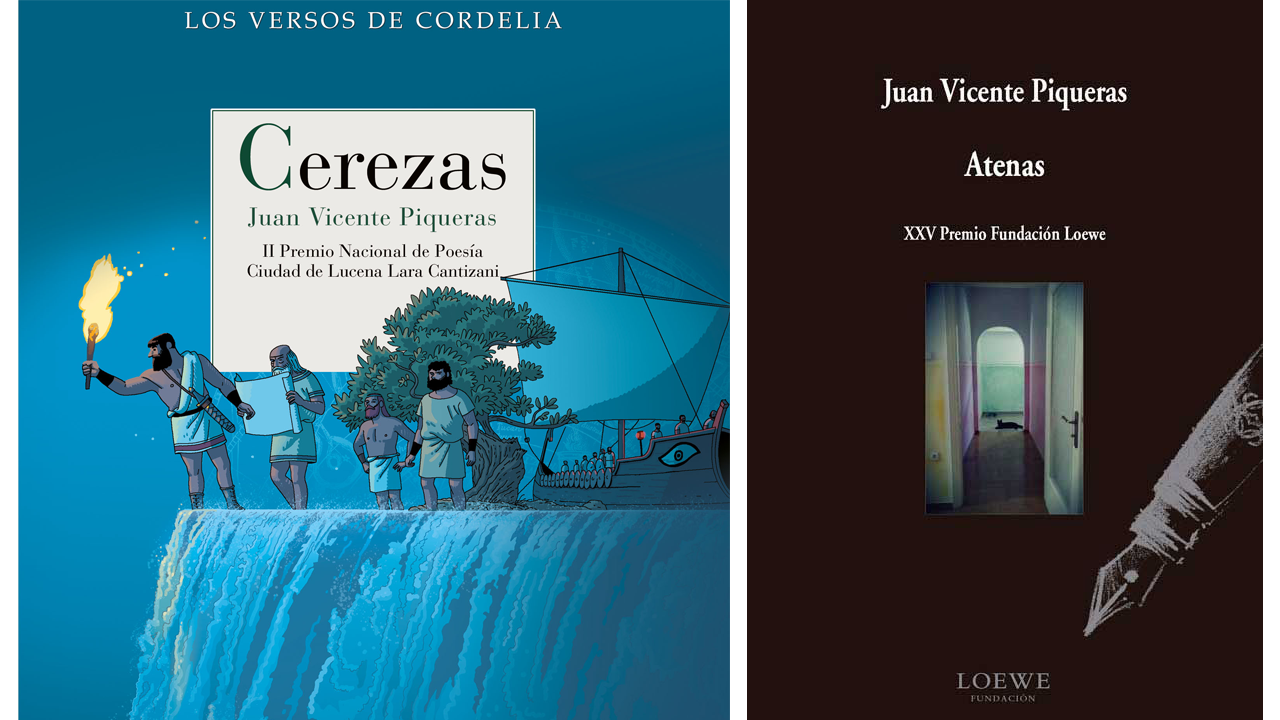Here is the watermelon, where the water sleeps – Piqueras said his father used to tell him, showing him the vegetable garden.
There are things that do not exist, that exist more; or so Juan Vicente Piqueras seems to want to tell us, given that the poems in Cerezas did not exist – if existence means publication- in his excellent book Atenas (Visor, March 2013). They were left out then, and now come to light those Poems of Athens that I did not include in Athens -as he says in his acknowledgments.
…If you ask me
what is life, or what is its meaning?
I will answer: the taste of cherries.

Cherries, which gives the book its title, tells of how he used to buy them in Syntagma Square, to eat them, forgetting certain sorrows, such as having also seen Aeschylus’ children helplessly attending their own tragedy (Here it is, p. 20).
For Piqueras, poetry is in plain sight, and the idioms are nothing less than evidence that poetry is not hidden. What is the expression “conspicuous by its absence”, if not pure poetry? -he asked rhetorically at the launch of Cerezas at Madrid’s La Mistral bookstore.
He says that as a child he was lucky enough to hear the most everyday phrases from his father’s mouth rendered in a didactic and at the same time brutally poetic way.
Here is the watermelon, where the water sleeps – Piqueras said his father used to tell him, showing him the vegetable garden.
Discussing poetry, Piqueras dares to say, as one who dares to know (sapere aude), that contemporary poetry smells of nothing, tastes of nothing, nothing, he seems to say, that reminds him of that garden where the watermelon lay, in addition to the water.
Spain’s former ambassador to Jordan reminded the poet that his verses taste of Mediterranean sensuality, along with something else she can’t quite identify in his writing, as Piqueras mixes this and so much more in his own brand of bechamel sauce, making his poetry a kind of verbal juggle, which has her hooked, even if she confesses she doesn’t read poetry.
At the end of the launch, Piqueras confessed that he wasn’t sure which sauce or juggling was at play here, but that there is a Persian legend about how if death saw someone reading or writing, she, death, always so serious, kept her distance.
At the risk of contradicting the Persian legend, I enthusiastically recommend approaching, and not moving away from, this new work by Juan Vicente Piqueras, noting that it is his particular cry, or whisper, of anguish and loneliness, as Luis Alberto de Cuenca, president of the jury that awarded Cerezas the II Premio Nacional de Poesía Ciudad de Lucena Lara Cantizaniwrites writes in one of his poems. I might add that Piqueras’ cry is not without a good dose of humor.
PS: The book is dedicated to the memory of the poet Manuel Lara Cantizani. And the epigraph of the book says in Latin that conquered Greece in turn conquered its ferocious victor and introduced all the arts in rural Latium (Graecia captaferumvictoremcepit et artis intulit in agrestiLatio, Horace, II, 1, 155-156). Get ready to be conquered!!!

